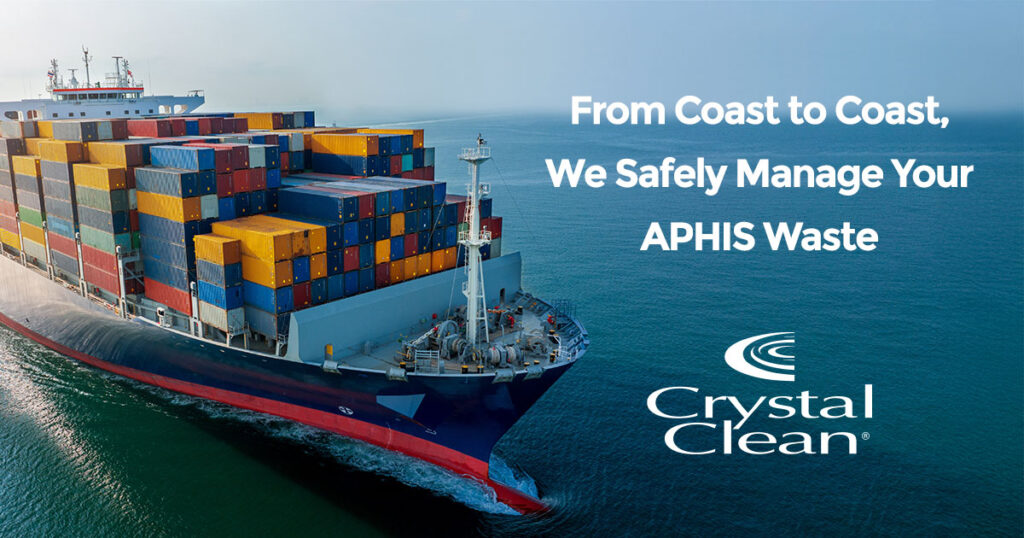October 31, 2025
Not all regulated waste is the same. What sets APHIS waste apart is its origin. Any waste that has traveled to or originated outside of the United States and Canada within the past two years is considered APHIS waste.
The reason for this classification is straightforward but critical. Foreign food products and packaging materials can carry pests, plant diseases, or contaminants that pose risks to U.S. agriculture, ecosystems, and even public health. To prevent these threats, the USDA Animal and Plant Health Inspection Service (APHIS) has strict rules for how this waste must be handled and disposed of.
What Can Be Considered APHIS Waste?
When most people hear “regulated waste,” they think of hazardous chemicals or medical byproducts. APHIS waste is different because it often looks ordinary which is why it is important to bring attention to what it is. Any item that came into contact with imported food or beverages may be classified as APHIS waste.
This includes:
- Packaging materials like wrappers, cartons, and cans.
- Utensils, napkins, and disposable tableware that touched foreign food.
- Containers or bottles that once held beverages.
A key point to remember: once this material is mixed with regular trash, the entire batch becomes contaminated and must be treated as APHIS waste. This makes careful segregation essential in airports, shipping facilities, and businesses that handle imported products.
How APHIS Waste Must be Managed
Unlike ordinary garbage, APHIS waste cannot simply be placed in a dumpster and hauled away. Regulations require that it be collected and managed by trained professionals to ensure safety and compliance.
The standards include:
- Tight, covered, and leak-proof containers to prevent leakage or accidental exposure.
- Clearly marked receptacles labeled as regulated waste to avoid confusion with other trash streams.
- Final treatment by incineration or sterilization, ensuring that any potential pests, diseases, or contaminants are destroyed before disposal.
These requirements are not optional and are mandatory steps designed to protect agriculture and prevent the accidental introduction of invasive species or pathogens.
Why Professional Disposal Matters
Failing to comply with APHIS regulations can result in severe consequences, including fines, legal penalties, and environmental damage. Businesses that manage imported goods such as airlines, shipping companies, and logistics providers are especially at risk if proper waste practices are not followed.
By working with a trusted waste management provider, organizations gain:
- Peace of mind, knowing their operations meet government requirements.
- Regulatory compliance with USDA APHIS standards.
- Secure, reliable collection and disposal using approved methods.
- Reduced liability risks, protecting both brand reputation and the environment.
The Crystal Clean Advantage
At Crystal Clean, we provide a full-service solution for APHIS waste. From supplying compliant containers to transporting waste securely and ensuring final treatment by incineration or sterilization, our trained teams handle every step.
We know that compliance is more than a box to check, it’s about safeguarding agriculture, trade, and communities. By choosing Crystal Clean, businesses gain a partner that combines regulatory expertise with dependable service, helping them focus on operations while staying fully compliant.
Protect your business and community. Trust Crystal Clean for your regulated waste needs.
